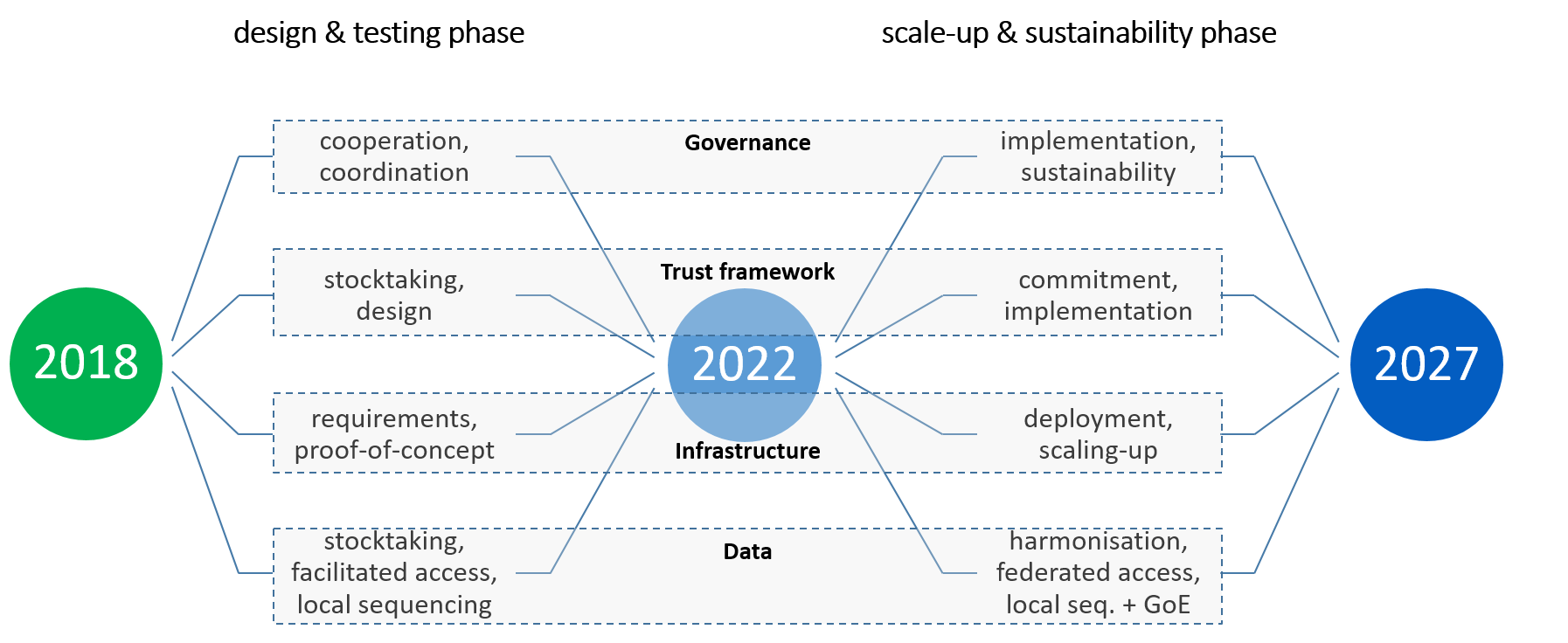Despite being in its early developmental stages and the lack of comprehensive regulatory frameworks to address its shortcomings and risks, artificial intelligence (AI) has seen rapid and widespread adoption in both the public and private sectors. Bias is one of the issues that may mar these technologies. However, a pioneering initiative developed by the Dutch capital, Amsterdam, is championed as a first step to mitigate what is known as "AI bias" in the provision of government services. This initiative involves the creation of a registry or archive of algorithms used to enhance transparency, accountability, and expand public participation in improving them.
Governments use algorithms in their automated services to facilitate the accessibility and usability of these services, improve user experience, and achieve optimal performance of service-supporting operations. Algorithms also assist in service management, fraud prevention, and generally contribute to cost reduction in both the short and long term. However, AI bias, or algorithmic bias, has become a growing concern for officials. It poses a challenge in delivering services to all users fairly, equitably, and justly.
The roots of this bias arise during the development of artificial intelligence, which relies largely on providing a set of clear guidelines and specific instructions, or algorithms, that are taught to the system through machine learning, in addition to the data set related to the service that is fed into the system. There are several reasons for AI bias, including historical biases inherited in practices and systems, or those not intentionally caused by programmers who prepare the algorithms. Sometimes, the reason is a technical error in formulating the algorithm or inaccurate data and statistics.
Regardless of the root cause, AI can exacerbate bias when it makes unfair decisions based on these algorithms in the provision of government services, especially in critical areas that can negatively impact user safety or future prospects, such as healthcare, the judiciary, and education. As a result, such bias can lead to the preferential treatment of certain users over others and the inequality of rights among various user groups based on factors such as race, gender, age, and more. With the increasing integration of smart technologies and algorithms into various types of public services, finding solutions has become a priority for governments.
The Dutch Algorithm Registry is a standardized, searchable platform for algorithms and their archives. It documents all the hypotheses and decisions made during the development, application, and management of algorithms for all municipal services provided by the city of Amsterdam.
This registry aims not only to identify bias in existing applications and address it cooperatively with the public but also to proactively avoid bias in future applications. This involves encouraging programmers working on government artificial intelligence systems to be more aware of biases and errors in algorithm formulation and the quality of data used in the future, under accountability.
Another equally important goal is to build citizens' trust in artificial intelligence systems that remain mysterious to most of them. This is achieved by actively involving the public in understanding the hypotheses and concepts on which each algorithm is developed, using language that is accessible to the public. Moreover, during the algorithm registry development, consultations were conducted to seek input from users, a practice that was integrated into the digital fabric of the registry via a feedback form that allows users to report issues or give feedback.
This framework provides an opportunity to expand public engagement and allows researchers and independent software auditors to share their opinions, making the public an active partner in controlling services.
In addition to transparency in presenting algorithms, the hypotheses they are based on, and the names of their programmers, the registry enhances the comprehensibility and explanation of the algorithms wherever required and when requested. Several studies conducted worldwide have indicated that transparency and explainability are the two most important factors in building citizens' trust in artificial intelligence. Increasing the transparency of services will contribute to enhancing the transparency of various government activities in general.
The Amsterdam Algorithm Registry is still in its beta version and includes only a small number of government AI applications. For example, one of the algorithms deals with managing parking in the city, where the algorithm assists the authorities in determining whether parked cars are allowed and have paid the fees. The second algorithm enables citizens to report issues in public places in the city by "guessing" the correct issue category and sending it to the appropriate municipal department. The algorithm recognizes certain words like "waste" and "sidewalk" to determine the category, which is believed to speed up responses to citizens' inquiries.
A white paper published on the Algorithm Registry website offers several recommendations for addressing various aspects of the challenge posed by AI bias. These recommendations include the necessity of developing guidelines for independent algorithm auditors.
It seems that this step will not be the only one. Following in the footsteps of Amsterdam, the Finnish capital, Helsinki, launched a similar registry for algorithms used in government services to mitigate artificial intelligence bias. This was followed by coordination among several other European capitals and cities to establish similar joint efforts.
References:
- https://algoritmeregister.amsterdam.nl/wp-content/uploads/White-Paper.pdf
- https://www.themayor.eu/en/a/view/helsinki-and-amsterdam-with-first-ever-ai-registries-5982
- https://www.government-transformation.com/data/helsinki-amsterdam-first-cities-in-world-to-establish-open-ai-registers
- https://amsterdamintelligence.com/posts/interview-with-linda-van-de-fliert-about-the-algorithm-register
- https://citiesfordigitalrights.org/9-european-cities-set-common-data-algorithm-register-standard-promote-transparent-ai






